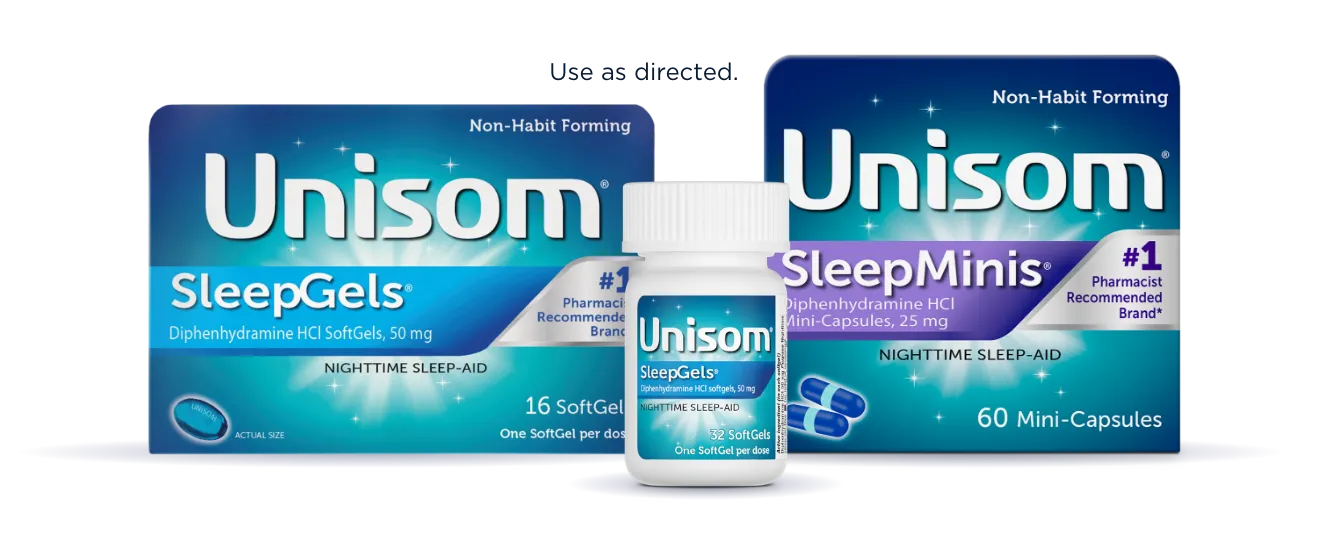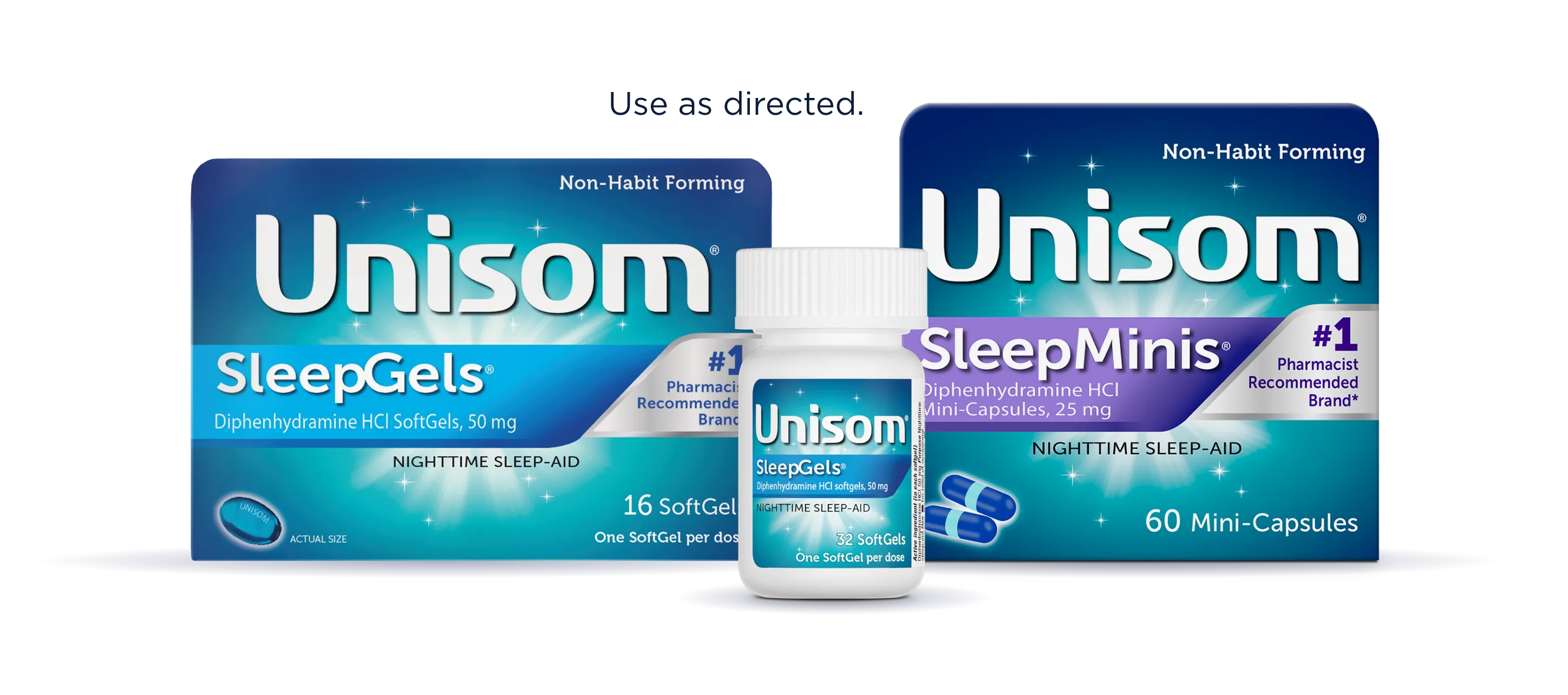The stages of the sleep cycle
There are two basic types of sleep: rapid eye movement (REM) sleep and non-REM sleep. Each sleep cycle consists of four stages: three stages of non-REM sleep and a fourth stage of REM sleep. Over the course of seven to nine hours of sleep, most people experience four to six sleep cycles per night, which all together allow the brain and body to recuperate and recharge for the next day. If you don’t get enough of a particular stage, your physical and emotional health and ability to think clearly can suffer.3
Here’s how the four sleep stages work:
.png)
Every person’s progress through each sleep stage is unique, based on factors including age, physical health, and life stressors. Sleep cycles can even vary for the same person from night to night.4 While you may not have control over every factor that affects your sleep, there are steps you can take to ensure a healthy progression through the sleep stages so you’re getting the rest you need.
Decoding your sleep cycle
To establish your natural sleep rhythm, start by taking note of your own sleepiness. How tired are you throughout the day? When do you feel alert? If you find yourself nodding off during a Zoom call or on your subway ride to work, you may be sleep deprived.
These steps can help put you on the path to getting the sleep you need5:
- Track Your Sleep. Track your sleep patterns, including the time you go to bed, the time you wake up, and whether you wake up during the night (and, if so, for how long). A handy tool to help you do this is found here6. Note how you feel in the morning. Refreshed? Tired? Your sleep tracker can make you more aware of your sleep patterns and help you identify when you are getting enough—and when you’re falling short.
- Prioritize your sleep. Once you understand your needs, make sleep a priority. First and foremost, make sure you go to bed at a time that allows you to get the hours you need. Regular exercise and a healthy diet can play a huge role in regulating sleep. Try to avoid too much alcohol or caffeine, especially in the hours right before bed. And you may also want to consider taking a melatonin supplement, like Unisom® Simple Slumbers ™, to help you fall asleep. Melatonin works with your body’s natural sleep cycle, signaling that it’s time to sleep. It can help you fall asleep more easily and improve sleep quality.
- Try a sleep reset. Over the course of two weeks or so, pick a consistent bedtime and stick to it. Choose a time that’s early enough to allow you to wake up naturally without the aid of an alarm. At first you may sleep a bit longer than usual, as you pay off any accumulated sleep debt. But after a few days you’ll establish a consistent pattern in which you sleep about the same number of hours each night. This is the amount of sleep that your body naturally needs. Try to maintain this pattern consistently throughout subsequent weeks.
- Establish healthy sleep habits. Create a consistent routine that signals to your mind and body that it’s time to go to sleep. Wind down with 30 minutes of reading or gentle activities like stretching or listening to music. Avoid bright lights and consider using blackout curtains. Before bedtime, limit screentime on tablets, phones, and computers, which can keep your mind active suppress melatonin.7
Follow these steps and you’ll be well on your way to meeting your own unique sleep needs.
.webp)
Rest assured
Unisom® is the #1 doctor-recommended OTC sleep-aid brand, with a range of options to help you fall asleep and wake up feeling refreshed.
Unisom® SleepGels® contain the histamine blocker sleep-aid diphenhydramine HCI. Blocking histamine production can help you fall asleep faster and stay asleep.
Unisom® SleepTabs® contain doxylamine succinate, which is a clinically proven histamine blocker that works in a similar fashion to diphenhydramine. Unisom® SleepTabs® can help you fall asleep 33% faster and get a full night's sleep.
Find the Unisom® product that’s right for you.
Professional References
1. National Sleep Foundation, editors. October 2021, Chronotype cs. Circadian Rhythm.National Sleep Foundation (https://www.thensf.org/).
2. David R. Samson, Alyssa N. Crittenden, Ibrahim A. Mabulla, Audax Z. P. Mabulla and Charles L. Nunn. July 2017, “Chronotype variation drives night time sentinel-like behavior in hunter-gatherers. Published by the Royal Society (https://royalsocietypublishing.org).
3. National Sleep Foundation, editors. October 2021, Stages of Sleep. National Sleep Foundation (https://www.thensf.org/).
4. National Sleep Foundation, editors. October 2021, Stages of Sleep. National Sleep Foundation (https://www.thensf.org/).
5. The Division of Sleep Medicine at Harvard Medical School, Produced in partnership with WGBH Educational Foundation. December 2008, Assess Your Sleep Needs.
6. Lisa J. Meltzer, PhD, CBSM, and Valerie McLaughlin Crabtree, PhD, CBSM. Pediatric Sleep Problems: A Clinician's Guide to Behavioral Interventions. Supplement,(https://www.apa.org/pubs/books/supplemental/pediatric-sleep-problems/Sleep_Diary_Instructions.pdf) by the American Psychological Association (https://www.apa.org).
7. Eric Suni, Medically Reviewed by Dr. Abhinav Singh. July 2020. Healthy Sleep Tips. National Sleep Foundation (https://www.thensf.org/).
Related articles
†This statement has not been evaluated by the Food and Drug Administration. This product is not intended to diagnose, treat, cure or prevent any disease.
.webp)


.png)

